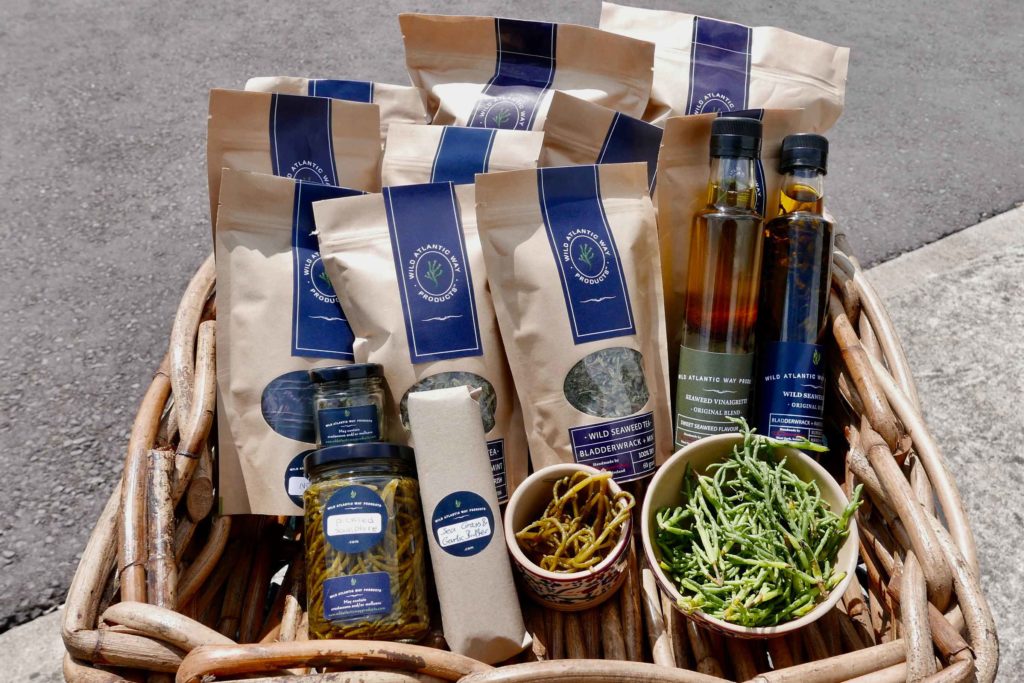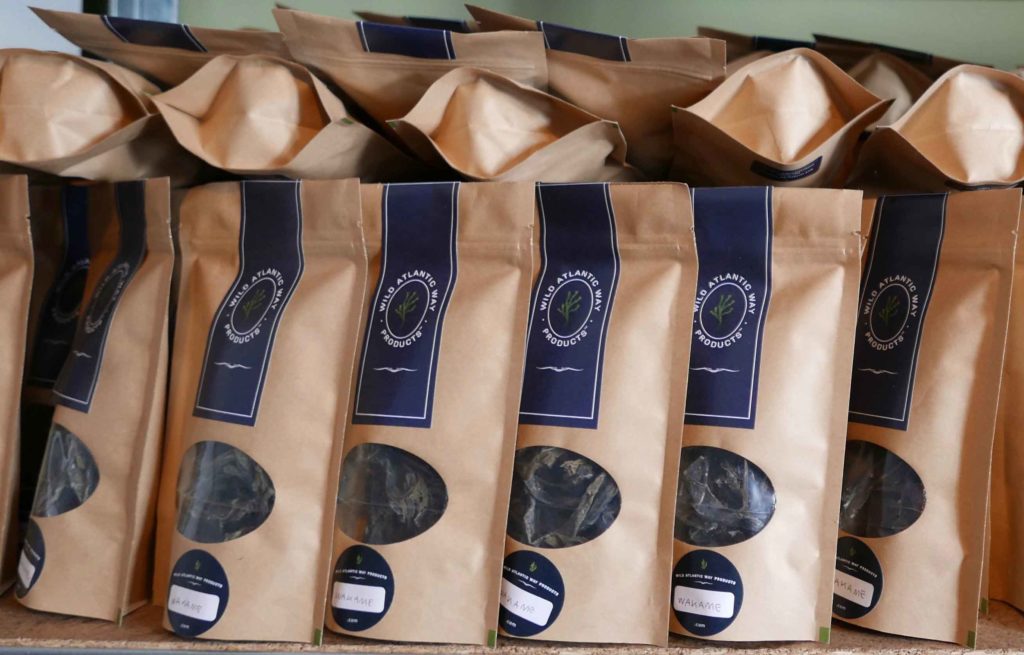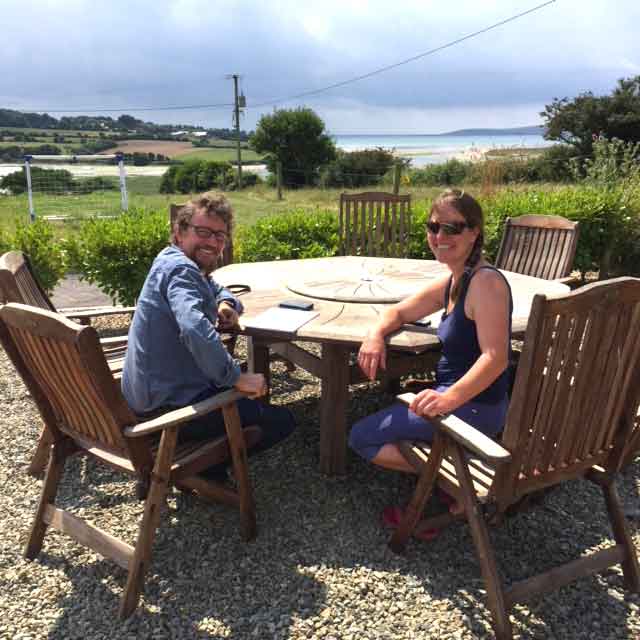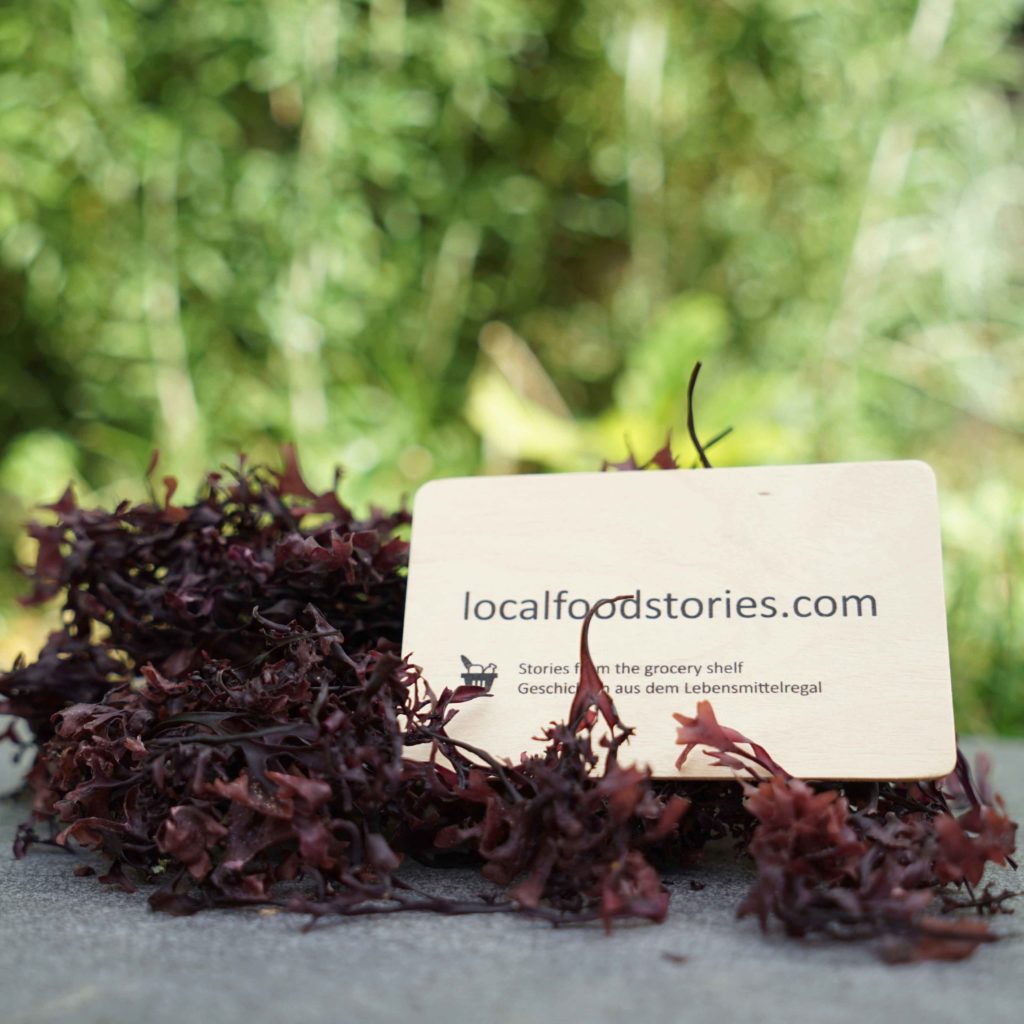The natural superfood
Wild Atlantic Way Products
#ireland #seavegetables #seaweed
Zita Dennehy produces products from ingredients which have melodious names such as Bladderwrack, Carrageen, Kelp, Irish Wakame or Dillisk. In colloquial language they would be referred to as seaweed and more usual today as Zita notes sea vegetables. ‘When people hear the name seaweed they often think of a brown, green slimy plant which is not really the case. It exists in many different varieties just like vegetables,’ expands Zita. The plant-like organisms are found in nearly all waterways worldwide whereby currents, water temperature, solar radiation and many other factors determine which varieties occur. ‘Alone on Ireland’s coast grow a little over 500 different sea vegetables,’ says Zita. Zita has studied this subject intensively for five years. It all began when she used to bring her just six month old daughter to the beach and struggled to get her out from crawling in the rock pools. ‘She kept eating bits of sea grass and so I decided to try it for myself and was quite surprised by the pleasant taste,’ recalls Zita. This was the initial start of the development of her own range which she named ‘Wild Atlantic Way Products’. ‘All of my products contain seaweed in different compositions,’ Zita summarises.
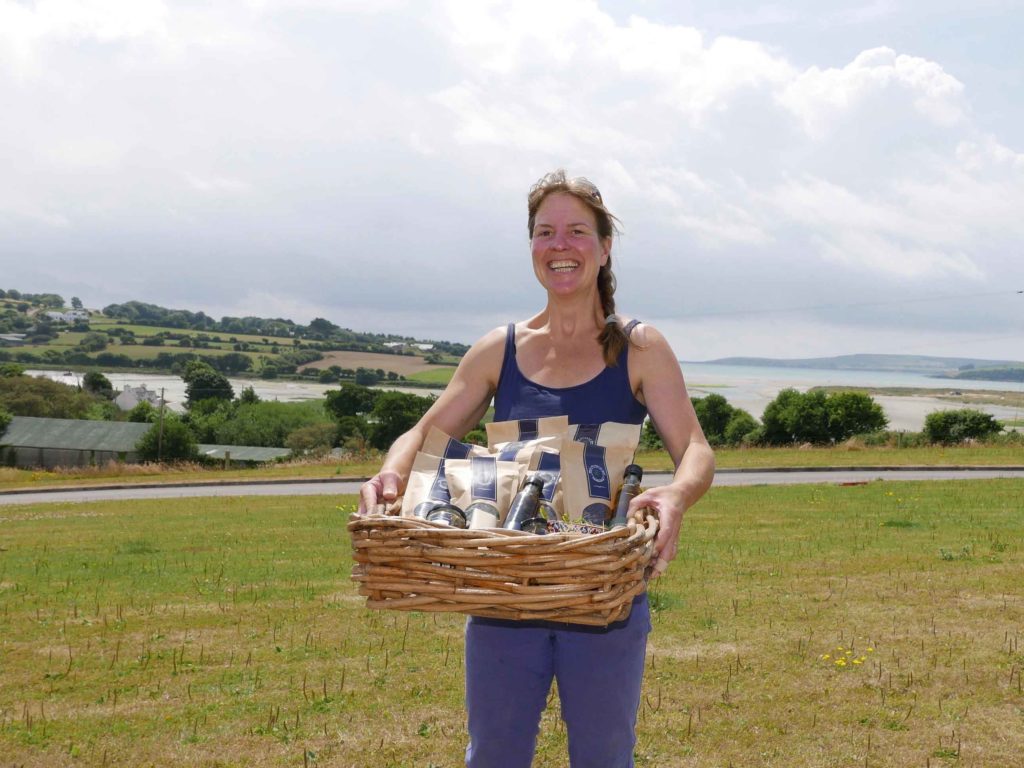
n Küchen und Kosmetik sehr geschätzt
Appreciated in cooking and cosmetics
Until Zita could reach production stage she had to study more about these organisms: which seaweeds are suitable for human consumption? Which ones can be combined to create great tastes? Which substances exist and in which form are they present? The answers to these questions and many more led her to several different sources since ‘The knowledge about seaweed has been lost in our culture over the last century.’ Which is amazing as after all especially in Ireland seaweed was part of the staple diet for centuries.The Vikings and many other seafarers greatly valued dried seaweed because of it being a good source of vitamin C which helped to prevent scurvy on long voyages. Irish seaweed was so exclusive during the Middle Ages that it was delivered to the British Royal Family. During the Great Famine which took place in Ireland in the mid 19 century, seaweed was eaten to calm hunger pangs. The high consumption rate at that time caused a depletion of and even extinction of some varieties. ‘After this it became a source of embarrassment if you were seen collecting seaweed as it was considered a sign of poverty,’ tells Zita.
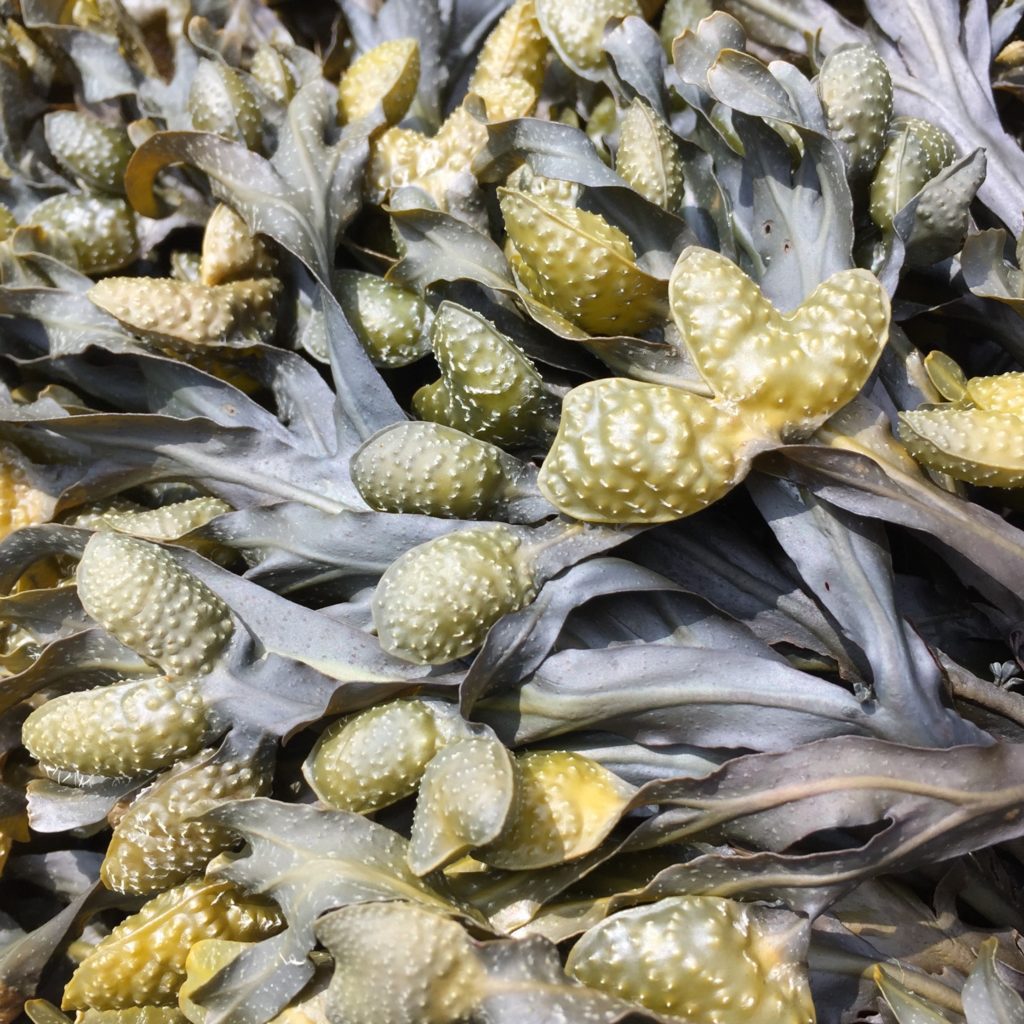
Today its use is widespread. It is valued in the cosmetic industry for its rehydration and antioxidant properties and in cooking it is a natural flavour enhancer and a source of vitamins, minerals and trace elements. It is also a natural source of sodium glutamate one of the most common non-essential amino acids. In addition due to its high content of antioxidants it is believed to have antiviral, antibacterial and anti-inflammatory effects.
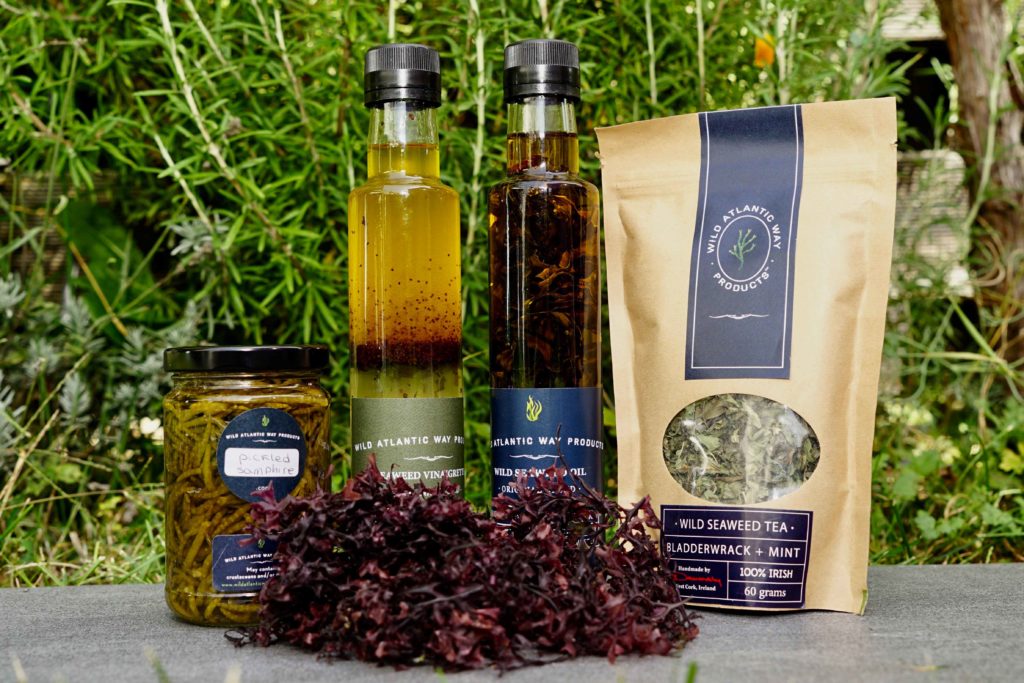
Hand-picked and sustainable harvesting
The Wild Atlantic Way Product range includes mainly edible sea vegetable mixes although Zita is also a wholesaler of seaweed oil which she supplies to cosmetic companies. Zita stresses ‘I harvest all the plants I need by hand and pay particular attention to sustainability.’ Her best sellers are a salad dressing made from Irish rapeseed oil and Bladderwrack, a seaweed tea and a seasoning mix. Besides these favourites, Zita often brings out seasonal products on the market such as seaweed crisps or garlic-seaweed butter.
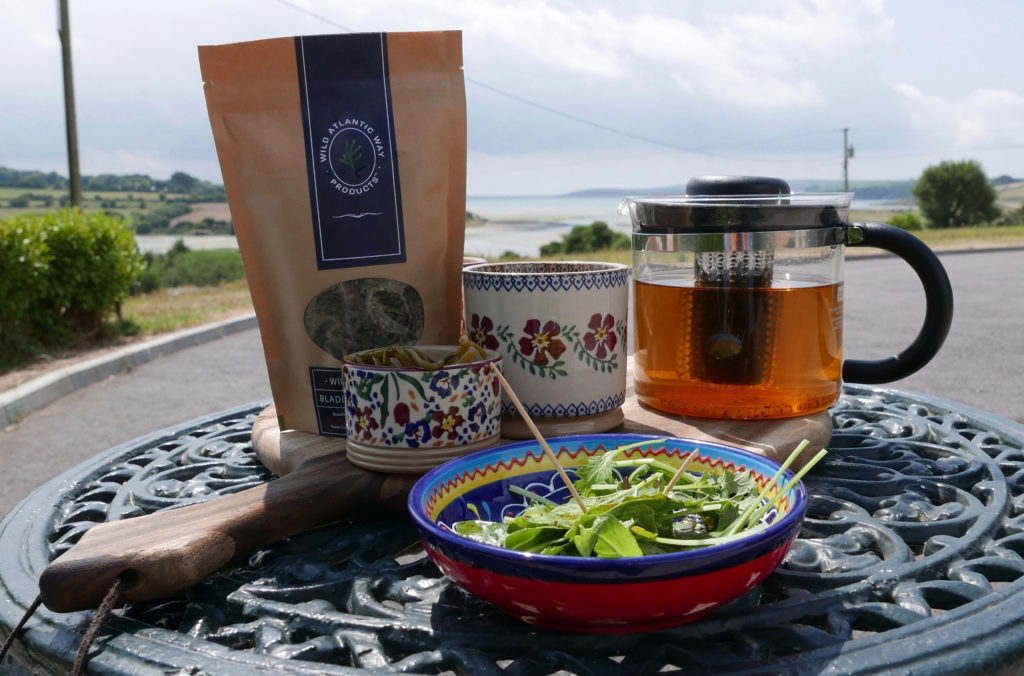
She sells her creations on her online shop, to local restaurants including a specialised Japanese restaurant in nearby Cork city as well as notable golf clubs in the area. Her stand at the local market offers besides her product range, food-to-go options such as a miso soup based on Irish Kelp or a marinated sea spaghetti salad.Even after five years of producing products from this fascinating organism Zita still gets lots of enjoyment from it especially when walking along the picturesque coast of West Cork in order to harvest Bladderwrack, Carrageen, Kelp, Irish Wakame or Dillisk.
